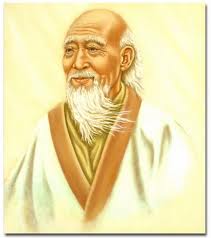“Watch your thoughts; they become words. Watch your words; they become actions. Watch your actions; they become habits. Watch your habits; they become character. Watch your character; it becomes your destiny.”
Lao-Tze
“Observa-ti gandurile; ele devin cuvinte.
Observa-ti cuvintele; ele devin actiuni.
Observa-ti actiunile; ele devin obiceiuri.
Observa-ti obiceiurile; ele devin caracter.
Observa-ti caracterul; el iti devine destin.”
LAO-TZE
c.604 – c.521 BC
Chinese Philosopher
Filozof chinez
Legendary figure who lived possibly in the 6th century, or alternatively in the 4th century BC. Lao-Tze became famous as a sage, or wise man of China during the so-called ‘Age of Philosophers’.
Figura legendara care a trait posibil in secolul al saselea, sau in secolul patru î.e.n. . Lao-Tze a devenit faimos ca si intelept erudit în China în perioada numita ‘Vârsta filozofilor’
Lao-Tze is thought to be the reputed author of the “Tao Te Ching” and founder of the Taoist religion in China.
Se presupune ca Lao-Tze este reputatul autor al operei “Tao Te Ching” şi fundatorul religiei taoiste în China.
The “Tao Te Ching” teaches a nonaggressive approach to life and a stoical indifference to the powers of the world; it says that man must imitate the universe, which endures because it does not live for itself.
Opera “Tao Te Ching” ne învaţă să privim viaţa în mod neagresiv, cu o indiferenţă stoică în faţa puterilor lumii; spune că omul trebuie să imite universul, care îndură pentru că nu trăieşte pentru sine.

